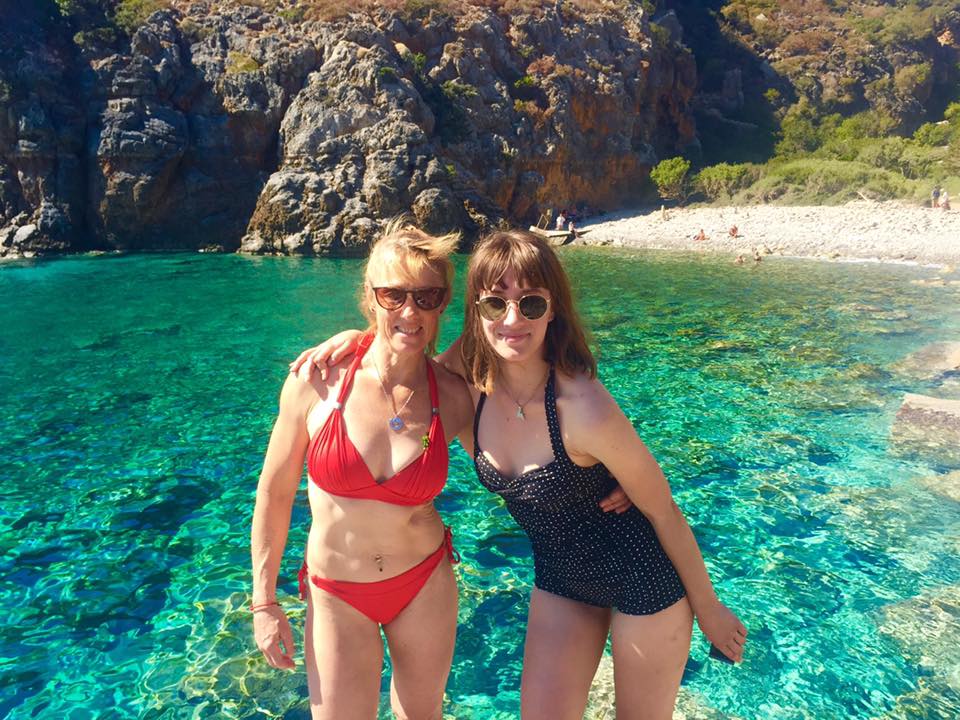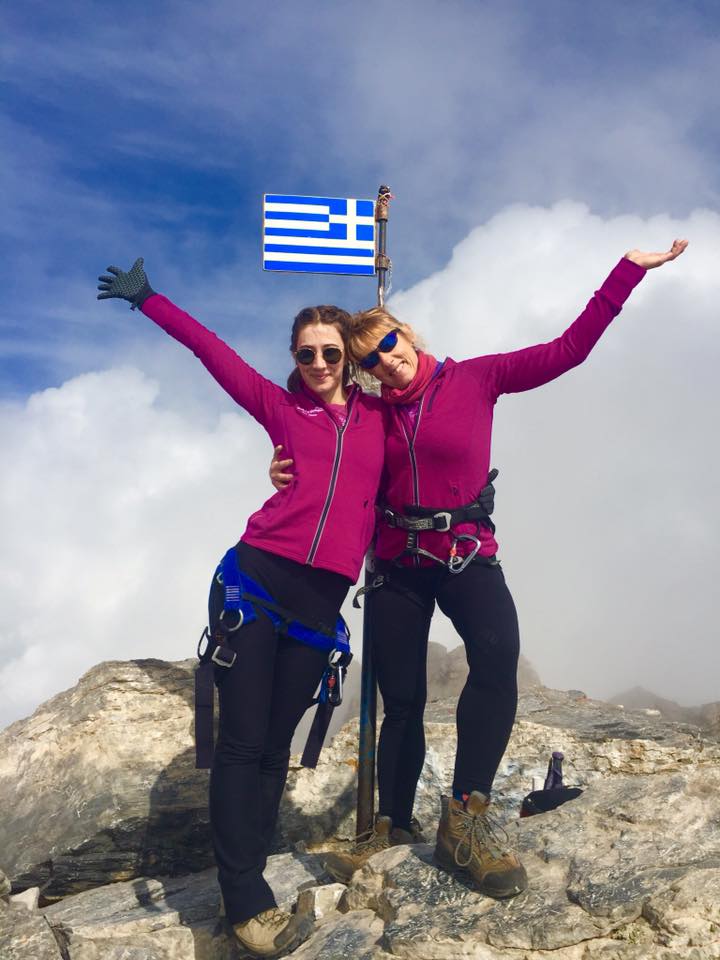This post discusses eating disorders.
I knew my relationship with food had hit an all-time low when I was hunched over the toilet after having eaten an entire tub of Nutella, 6 slices of bread and 8 cookies, and I couldn’t even make myself sick.
I say this with irony, but it was no joke.
When I was in my late teens and early twenties, I struggled with a binge eating disorder. It was my constant companion, a complex web of lies and secrecy that accompanied me wherever I went, stealing joy from mealtimes, isolating me from friends and family and trapping me in a cycle of body obsession.
Every day I would wake up with the intention to ‘eat clean, eliminating fat and carbs in an attempt to shed kilos that weren’t even there. By 11am, I was starving, and thoughts of lunch began. I tried to stop my stomach from rumbling with tiny bowls of low-fat yoghurt or broccoli. I snacked on blueberries and almonds, carefully counted, that I packed in a heart-shaped tin box. Healthy. Perfect.

I might look healthy, but this image was taken at the height of my eating disorder.
By 3pm, I was starving again, and this time I couldn’t contain it. I’d race home from school and through the front door, my mind already at the freezer. Frantic. Desperate. The first spoonful of ice cream on my lips was heaven. I’d put the tub back, slightly ashamed, and head to my room.
Five minutes later, my brain started again. Just one more spoonful. Just one.
I’d rush to the freezer, guiltily. Yum. It satiated me momentarily, but this time I’d have two, maybe three spoons before putting the tub away and returning to my afternoon.
This continued, the spaces between my freezer visits getting shorter each time. It always ended the same way: an empty tub, an empty packet of cookies, an empty jar of Nutella.
I’d sit on the kitchen floor, soaking in shame.
If I couldn’t find sweets, it was bread. Peanut butter. Butter. Cream. I ate until the pain in my stomach was louder than the voice in my head, numbing me. I wasn’t enjoying the food; it was a form of self-harm, torturing me from the inside.
I often tried to vomit, but I never had the follow-through. I hated myself for being so weak; I couldn’t even succeed at my eating disorder.
Writing this, years after my recovery, I feel so disconnected from that girl. I struggle to understand her, the depth of suffering and insanity that leads a person to treat themselves so poorly.
But I remember the irrationality. The total lack of control. At the time, I’d believed I was simply too weak, and not disciplined enough. Now, I know the issue was way more complex.
___
My healing started with therapy. As you can probably guess, I had some lessons to unlearn about diet culture and body image. I was trying and failing, to force my body to be a size it didn’t want to be, and it was fighting back.
The key risk factor for binge eating disorder is dieting. By restricting my nutrient intake, I was signalling to my body that it was at risk of starvation. According to Eating Disorders Victoria, during this starvation response, “the body’s metabolism slows, fullness signals can be suppressed or difficult to interpret, and a person’s thoughts and attention are directed towards food. People often describe these thoughts and attention towards food as intrusive, or that they can’t stop thinking about food.
“This survival response can initiate a drive to overeat, in an attempt to protect the body from the further restriction of nutrients. It is common to be drawn towards “off limits” foods like cakes, pizza, pasta, sweets or chips as these offer a rapid refuel of energy.”
In other words, I was starving my body of nutrition, denying it nourishment, and it was telling me to f*ck off and feed it.
But the binges weren’t simply my body asking for food. They were a form of self-harm. I had tied my self-worth to my weight, my weight to my diet, and I believed that if I failed at perfection, I deserved to suffer.
I told myself that I was disgusting, unlovable, and worthless. I believed that if I was fat, my family wouldn’t love me.
Ah yes, we’ve got to the ‘mum’ part.
___
I had a mum who was obsessed with her weight and body. She’s shared that on this website, and her vulnerability and growth are awe-inspiring.
But for me as a teenager, her dieting was destructive.
My mum was always smaller than me. Fitter. Slimmer. More toned. She’s a former athlete, with a powerful body that she works hard to maintain.
I’m taller, curvier, and softer.
If she’s ashamed of her body, I thought, she must be even more ashamed of mine.
(And oh look, writing this had made me cry. But we can persevere.)

“If she was ashamed of her body, she must be even more ashamed of mine.”
I now know this is utter bullshit. She was never ashamed of my body. She never based my worth on how I looked. When we’ve spoken about it in the years that followed, once I finally admitted I needed help, she was gobsmacked and stricken by the impact of her words.
But she was raised in a world that was drenched in diet culture. She worked in gyms in the 80s, when low-fat yogurt and slim-fast shakes were on the menu. She’d always believed herself to be fat (she wasn’t) and, in my eyes, believed being fat was the worst thing a woman could be. She’d been dealt a bad hand, and she didn’t even know it.
She taught me how to diet, suggesting daily weight check-ins and low-calorie snacks in an effort to be supportive. She told me to weigh myself on an empty stomach (it makes you lighter!) and avoid eating peas (they make you heavier!), each comment adding weight to the value of the scales.
This is so common. I see it often in my friends, colleagues, and acquaintances. I read about it regularly. Mothers are infamous for making comments about their daughters’ bodies, whether that dress is ‘flattering’ or ‘if they really need to eat that’. I had that in bucketloads.
It might be well-intentioned, but for me, it had disastrous consequences.
When I worked as a journalist at HuffPost, I read this blog called ‘How To Talk To Your Daughter About Her Body. The short answer? Don’t.
And once I understood this, I was committed to change. I was committed to breaking this intergenerational cycle of disordered eating, body shame and suffering.
I knew, if I ever had a daughter, I never wanted her to go through what I did. But to make that happen, I needed help.

“She was raised in a world that was drenched in diet culture.”
I had to seek advice from outside my family, from people who had a healthy relationship with food, exercise, and body image.
Along with therapy, I quit dieting and worked on restoring my relationship with my body. I learned how to listen to my hunger cues. I learned about body neutrality and intuitive eating.
I un-learned a bunch of stuff too. I un-learned the idea that how I look is the most interesting thing about me. I un-learned the idea that you can’t be loved if you’re overweight. I un-learned the idea that food has morality. I un-learned the idea that the goal is to eat as little as possible.
And, over the space of a few years, I healed.
Now, I eat nourishing, colourful plant-filled meals at every opportunity. I experience zero food guilt. I adore cooking and I also adore eating out. I’m not scared of carbs, fat, or sugar.

I finally have a healthy relationship with food and my body.
I do currently have some dietary requirements to help heal my gut microbiome – damaged from years of binging and fasting – but otherwise, I don’t restrict. I don’t binge or purge. I don’t use food as a punishment. I don’t monitor what I eat. I don’t plan my meals. I don’t weigh myself. I don’t have food cravings. I don’t eat from the fridge.
I sometimes enjoy chips and burgers and ice cream and lollies and cakes and treats. When I do, I can just eat a few, not the whole packet.
Mostly I eat healthfully because I want to. Because it makes me feel good. Because it tastes amazing. Because it nourishes me. Because my body feels better when I do.
The reason I’m telling you this story is because I believe our relationship to food and our relationship to our bodies is inextricably linked, even if we’d prefer them not to be.
Improving your health or losing weight is not as simple as following a diet plan, especially if you have complex emotions around food. And in fact, dieting can have the opposite effect.
For most women I know, food is about more than just fuel. It’s comfort and culture. It’s flavour and connection. It’s family and celebration. But it’s also guilt and shame. It’s punishment and control.
I believe in food freedom because I’ve found it. It took work. It took time. It took effort.
But every day I live without the burden of disordered eating, where mealtime is both effortless and enjoyable, is a gift.
If you’re struggling with your relationship with food or your body, I want you to know that I understand. I see you.
There is a way forward. There is recovery.
And I encourage you to seek it.
If you need support with an eating disorder, please reach out to the Butterfly Foundation.









